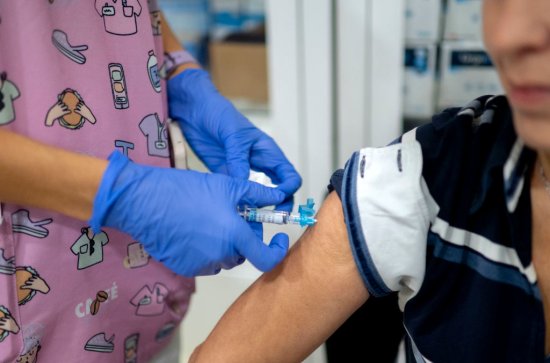
And is it bad not to have side effects after a shot?
Vaccine side effects like soreness, fever, and fatigue scare some people out of getting their shots. Ask a doctor, though, and they’ll tell you these unpleasant symptoms have a silver lining: they’re a signal that your immune system is firing up in response to the shot, doing exactly what it’s supposed to do.
“If you feel bad after the vaccine, at least feel good about feeling bad,” says Dr. Kevin Dieckhaus, chief of infectious diseases at UConn Health and co-author of a 2023 study on COVID-19 vaccine side effects.
[time-brightcove not-tgx=”true”]But is it a bad sign if you don’t get side effects after a shot? Does a pain-free next day mean the vaccine didn’t work?
Probably not. Here’s why.
Why do vaccines cause side effects?
Vaccines work by mimicking an infection. They introduce your body to a weakened or broken-down form of a particular pathogen so it can practice defending itself against the real thing. This involves creating antibodies, proteins that attack foreign invaders.
When the immune system fires up in response to the shot, it results in inflammation that can leave you feeling lousy the next day. A flu shot won’t give you the flu—you’re not actually getting infected—but you may temporarily experience some of the same symptoms.
However, side effects vary. Some shots produce more than others. And even two people who get the exact same vaccine may have totally different reactions, for a range of reasons including age, sex, health and immunization history, and other factors that scientists don’t fully understand. “The human body is an amazingly varied machine,” Dieckhaus says.
Do stronger side effects mean stronger immune protection?
Multiple studies on COVID-19 shots have found at least a modest link between the number and severity of side effects someone experiences after vaccination and the strength or durability of their immune response. A 2022 study pointed to a similar effect for flu shots.
Read More: 9 Things You Should Do for Your Brain Health Every Day, According to Neurologists
But not all studies have reached that conclusion. “The literature is pretty mixed,” says Florian Krammer, a professor of vaccinology at the Icahn School of Medicine at Mount Sinai. “It’s highly variable.”
Even some studies that have found a correlation have concluded that, when it comes to protection, the difference between people who get side effects and those who don’t is so minimal as to barely matter, Krammer adds.
So is it bad not to get side effects after a shot?
Don’t worry if you feel fine the day after an immunization. While side effects can be a sign of the immune system working, they are not necessary, Krammer says. In fact, vaccine developers usually strive to create a product that works as well as possible while triggering as few side effects as possible.
Almost “everybody gets an immune response” after being vaccinated, Dieckhaus agrees. “If you have symptoms, we just know that your immune response is probably a little bit more robust.” Side effects may be the cherry on top of the sundae, but you still have the sundae no matter what.
In the original clinical trials for Pfizer-BioNTech’s COVID-19 vaccine, for example, less than half of study participants reported side effects, but the shot worked well for the vast majority of people. People who don’t respond well to vaccines typically have a medical reason, such as taking an immune-suppressing drug. “If you’re a somewhat healthy adult and you don’t have side effects, good,” Krammer says.
Read More: Why Vinegar Is So Good for You
Plus, trends reported in studies don’t always translate to individual experiences, says Dr. Ethan Dutcher, a postdoctoral scholar at the University of California, San Francisco, and co-author of a recent study on the side effects of COVID-19 vaccines. Overall, his team found that people who experienced lots of side effects after their initial COVID-19 vaccines tended to mount stronger antibody responses. But as with any trend, there were plenty of exceptions. “We had a lot of people who didn’t experience tiredness who had higher antibody levels than people who did experience tiredness,” Dutcher says.
And, Dieckhaus says, the immune system is complex. His team’s study, which also found an association between side effects and durability of immune response, measured only one aspect of it: how long it took antibodies to wane after COVID-19 shots. But that’s “just one piece of the puzzle,” he says. There are lots of other variables that influence whether someone gets infected and how sick they’ll be if they do.
The bottom line: make sure you get your vaccines, and don’t worry too much about how you feel afterward. If you have side effects, “you can feel your immune system working,” Krammer says. “But if you don’t feel that, that’s fine too. It’s probably still working.”